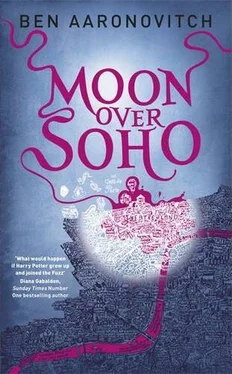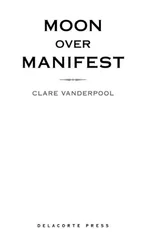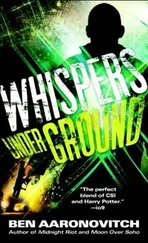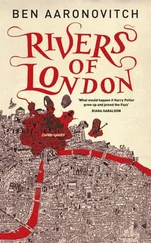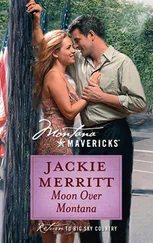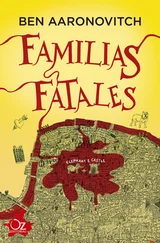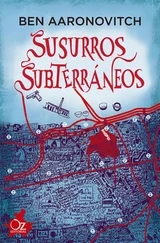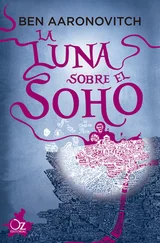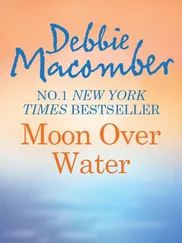Leslie pulled an iPad clone out of her bag and fired it up. She typed in keyboard mode and the iPad spoke — somebody in her family must have installed a speech synthesizer. It was a basic model with an American accent that made Leslie sound like an autistic surfer dude, but at least we could have an almost normal conversation.
She didn’t bother with small talk.
“Can magic fix?” she asked.
“I thought Dr. Walid had talked to you about that.” I’d been dreading this question.
“Want you say,” she said.
“What?”
Leslie leaned over her pad and stabbed deliberately at the screen with her finger. She typed several separate lines before hitting return.
“I want to hear it from you,” said the iPad.
“Why?”
“Because I trust you.”
I took a breath. A pair of old-age pensioners raced past the shelter on mobility scooters.
“As far as I can tell magic works within the same framework of physical laws as everything else,” I said.
“What magic do,” said the iPad, “magic can undo.”
“If you burn your hand on fire or electricity it’s still a burn — you fix it with bandages and cream and stuff like that. You don’t use more electricity or more fire. You …”
Had the skin and muscles of your face been pulled out of shape by a fucking malevolent spirit — your jaw was all smashed up and the whole thing was held together with magic and when that ran out your face fell off. Your beautiful face. I was there, I watched it happen. And there was nothing I could do.
“Can’t just wish it away,” I said.
“Know everything?” asked the iPad.
“No,” I said. “And I don’t think Nightingale does either.”
She sat silent and unmoving for a long while. I wanted to put my arm around her but I didn’t know how she’d react. I was just about to reach out when she nodded to herself and picked up the iPad again.
“Show me,” said the iPad.
“Leslie …”
“Show me.” She hit the repeat button several times. “Show me, show me, show me …”
“Wait,” I said and reached for her iPad, but she pulled it out of my reach.
“I have to take the battery out,” I said. “Or the magic will blow the chips.”
Leslie flipped the iPad, cracked it open, and pulled the battery. After going through five phones in a row I’d retrofitted my latest Samsung with a hardware cutoff that kept it safe but meant that the case was held together with elastic bands. Leslie shuddered when she saw it and made a snorting sound that I suspected was laughter.
I made the shape of the appropriate forma in my mind, opened my hand, and brought forth a werelight. Not a big one but enough to cast a pale light that was reflected in Leslie’s sunglasses. She stopped laughing. I closed my hand and the light went out.
Leslie stared at my hand for a moment and then made the same gesture, repeating it twice, slowly and methodically. When nothing happened she looked up at me and I knew, underneath the glasses and scarf, that she was frowning.
“It’s not that easy,” I said. “I practiced every morning for four hours for a month and a half before I could do that and that’s just the first thing you have to learn. Have I told you about the Latin, the Greek …?”
We sat in silence for a moment, then she poked me in the arm. I sighed and produced another werelight. I could practically do it in my sleep by then. She copied the gesture and got nothing. I’m not joking about how long it takes to learn.
The OAPs returned, drag racing past on the esplanade. I put the light out but Leslie carried on making the gesture, the movements becoming more impatient with every try. I stood it as long as I could before I took her hand in mine and made her stop.
We walked back to her house soon afterward. When we reached her porch she patted me on the arm, stepped inside, and shut the door in my face. Through the stained glass I watched her blurry shape retreat quickly down the hallway. Then she was gone.
I was about to turn away when the door opened and Leslie’s father stepped out.
“Peter,” he said. Embarrassment doesn’t come easily to men like Henry May, so they don’t hide it well. “I thought we might get a cup of tea — there’s a café on the high street.”
“Thanks,” I said. “But I’ve got to get back to London.”
“Oh,” he said and stepped closer. “She doesn’t want you to see her with the mask off …” He waved his hands vaguely in the direction of the house. “She knows if you come inside she’s going to have to take it off and she doesn’t want you to see her. You can understand that, right?”
I nodded.
“She don’t want you to see how bad it is,” he said.
“How bad is it?”
“About as bad as it could be,” said Henry.
“I’m sorry.”
Henry shrugged. “I just wanted you to know that you weren’t being sent away,” he said. “You weren’t being punished or something.”
But I was being sent away, so I said good-bye, climbed back into the Jag and drove back to London.
I’d just managed to find my way back onto the A12 when Dr. Walid called me and said he had a body he wanted me to look at. I put my foot down. It was work and I was grateful to get it.
EVERY HOSPITAL I’ve ever been to has had the same smell, that whiff of disinfectant, vomit, and mortality. The UCH was brand new, less than ten years old, but the smell was already beginning to creep in at the edges except, ironically, downstairs in the basement where they kept the dead people. Down there the paint on the walls was still crisp and the pale blue lino still squeaky underfoot.
The mortuary entrance was halfway down a long corridor hung with framed pictures of the old Middlesex Hospital from back in the days when doctors washing their hands between patients was the cutting edge of medical science. It was guarded by a pair of electronically locked fire doors with a sign saying — NO UNAUTHORIZED ACCESS; STOP; MORTUARY STAFF ONLY. Another sign ordered me to press the buzzer on the entry phone, which I did. The speaker gave a squawk and on the off chance that this was a question I told them that it was Constable Peter Grant to see Dr. Walid. It squawked again, I waited, and Dr. Abdul Haqq Walid, world-renowned gastroenterologist, cryptopathologist, and practicing Scot, opened the door.
“Peter,” he said. “How was Leslie?”
“All right, I suppose,” I said.
Inside the mortuary was much the same as the rest of the hospital only with fewer people complaining about the state of the National Health Service. Dr. Walid walked me past the security at reception and introduced me to today’s dead body.
“Who is he?” I asked.
“Cyrus Wilkinson,” he said. “He collapsed in a pub in Cambridge Circus day before yesterday, was ambulanced to A&E, pronounced dead on arrival, and sent down here for a routine postmortem.”
Poor old Cyrus Wilkinson didn’t look that bad apart from, of course, the Y-shaped incision that split him from chest to crotch. Thankfully Dr. Walid had finished rummaging around in his organs and zipped him up before I’d gotten there. He was a white guy in what looked like a well-preserved midforties, bit of a beer belly but still some definition on his arms and legs — he looked like a jogger to me.
“And he’s down here because?”
“Well, there’s evidence of gastritis, pancreatitis, and cirrhosis of the liver,” said Dr. Walid. The last one I recognized.
“He was a drinker?” I asked.
“Among other things,” said Dr. Walid. “He was severely anemic, which might have been related to his liver problems, but it looks more like what I’d associate with a B 12deficiency.”
I glanced down at the body again for a moment. “He’s got good muscle tone,” I said.
Читать дальше
